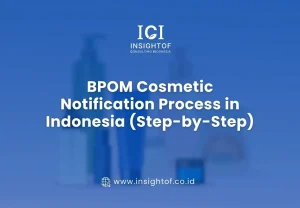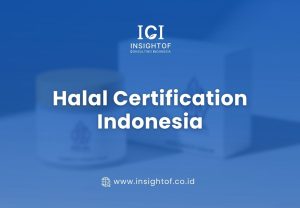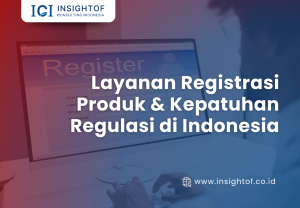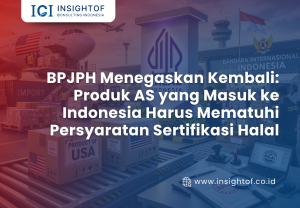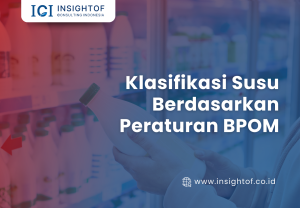As Indonesia’s consumer market continues to grow, so does the opportunity for global food and beverage exporters. However, recent developments highlight a critical point: compliance is not optional—it is essential. A notable case in April 2025 involving marshmallow products revealed how even registered imports can face regulatory challenges due to halal violations. This incident underscores the need for a thorough understanding of Indonesia’s food regulations, particularly regarding halal certification and BPOM (Badan Pengawas Obat dan Makanan) requirements.
Case Study: Marshmallow Products Under Scrutiny
On April 21, 2025, BPOM announced the results of a post-market investigation involving 99 marshmallow products. Alarming findings revealed that 11 products contained non-halal ingredients (specifically, pork), and 7 of those were incorrectly labeled as “halal.” All of these products had valid MD import permits and were registered in BPOM’s system, which raised concerns about documentation, testing, and enforcement.
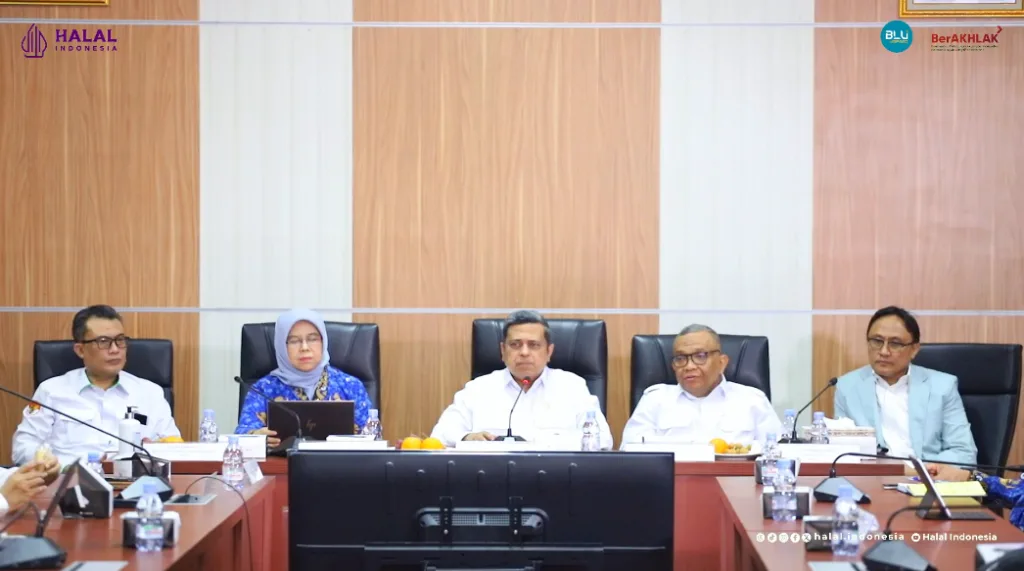
Products flagged included:
- Corche Fluffy Jelly Marshmallow (various flavors)
- Corniche Apple Teddy Marshmallow
- ChompChomp Car Mallow, Flower Mallow, Mini Marshmallow
- Flakiki Gelatin (imported from Thailand)
- Larbeel TYL Marshmallow Isi Selai Vanilla
- AAA Marshmallow Rasa Jeruk
- SWEETINO Marshmallow Rasa Cokelat
This incident exposed gaps in labeling, documentation, and laboratory verification—and underscores the importance of airtight compliance for any food exporter targeting Indonesia.
Why This Matters to You
Indonesia is the world’s largest Muslim-majority country. A single misstep in halal certification or label accuracy can lead to:

Treat regulatory compliance not as a checkbox, but as a competitive advantage: brands that deliver trustworthy, fully compliant products earn consumer loyalty and streamlined market access.
A Step-by-Step Guide for Exporters to Indonesia
Here’s a structured roadmap to ensure your food and beverage products meet all necessary Indonesian regulations:
 1.Ensure Halal Compliance
1.Ensure Halal Compliance
Mandatory Halal Certification for Imports (Effective October 2026)
In line with Indonesia’s Halal Product Assurance Law, the Ministry of Religious Affairs (Kemenag) through BPJPH has issued new guidelines requiring that all imported food, beverages, meat products, and slaughter services obtain halal certification before being distributed in Indonesia.
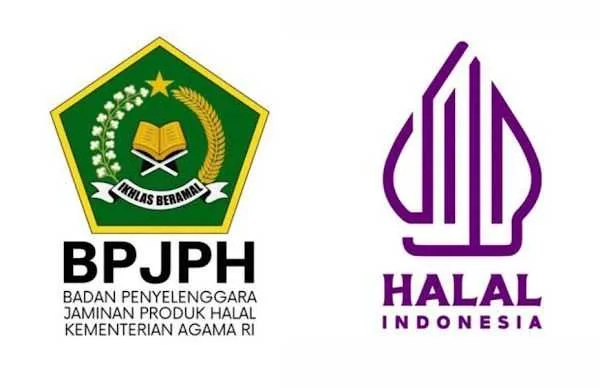
Key points:
- Based on Notification Letter No. P-550/KB/HK.00.1/7/2025, the regulation will be fully enforced by October 17, 2026.
- Products with foreign halal certifications—whether under mutual recognition agreements or not—must be registered with BPJPH and accompanied by supporting documents such as:
- Manufacturing process flow
- Ingredient composition
- Certificate of Analysis (COA)
- Products not yet certified halal must also submit similar documentation.
- Products containing haram (prohibited) ingredients or manufactured using non-compliant methods must display non-halal labeling, including a clear image, sign, or statement.
Failure to comply by the deadline will result in import barriers or product rejections at entry.
 2. Register Early with BPOM through INSIGHTOF
2. Register Early with BPOM through INSIGHTOF
All food products must obtain an MD import permit from BPOM. The registration process is conducted online through the EREG RBA platform, and requires:
- Letter of Authorization (LoA) from manufacturer (notarized)
- Company registration documents
- Importer’s NPWP
- Product composition & specification
- Certificate of Free Sale (or Health Certificate)
- HACCP/GMP/ISO 22000 certification
- Lab test results (microbiology, nutrition, heavy metals)
- Product label (Bahasa Indonesia version)
- Halal Certification (Mandatory Starting October 2026)
The process can take 3–6 months, so early submission is strongly recommended.
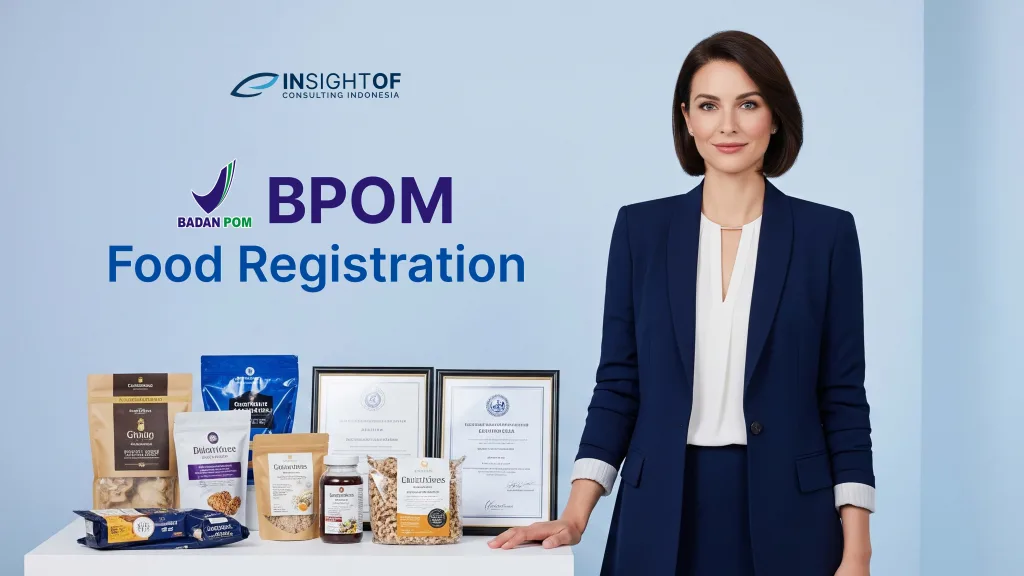
 3. Appoint a Local Authorized Representative
3. Appoint a Local Authorized Representative
Foreign exporters are required to appoint a local BPOM-registered agent to act on their behalf. The agent is responsible for:
- Submitting the product registration
- Coordinating product sampling and laboratory testing
- Managing post-border surveillance, including inspections at ports
Having an experienced local partner can significantly reduce the risk of delays or regulatory issues.
 4. Comply with Labeling and Advertising Requirements
4. Comply with Labeling and Advertising Requirements
Under Government Regulation No. 69 of 1999, all food and beverage products must display:
- Clear labels in Bahasa Indonesia
- Accurate information on ingredients, nutritional value, net weight, storage instructions, and expiry date
- No misleading claims (e.g., “low sugar,” “gluten-free”) unless backed by laboratory verification
Failure to meet labeling requirements may result in fines, relabeling orders, or product bans.
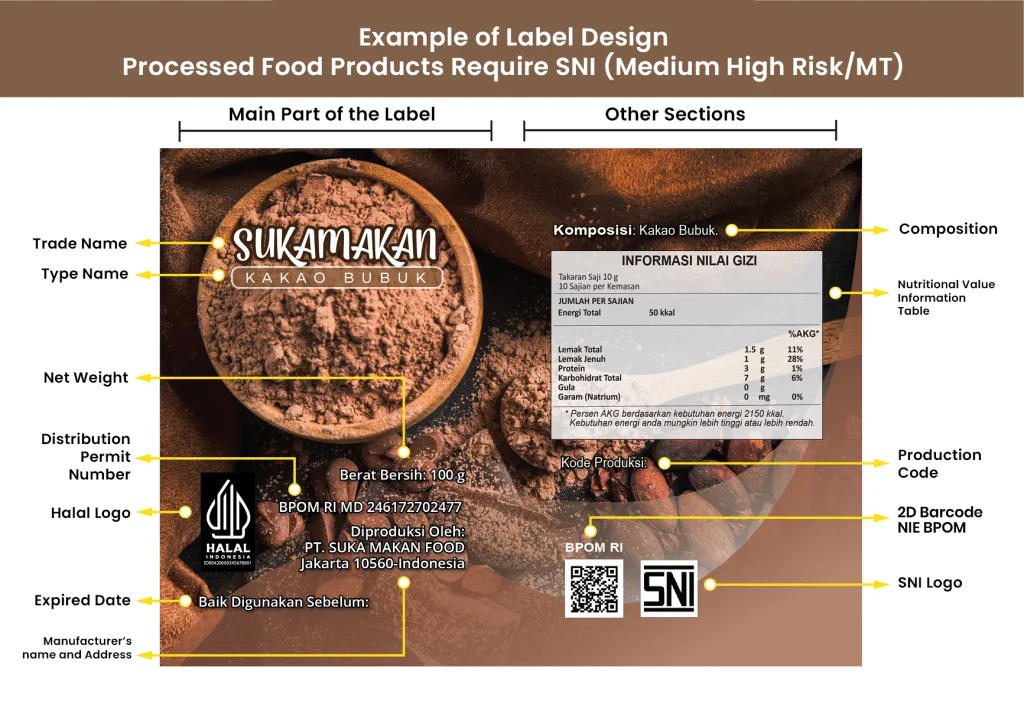
 5. Be Prepared for Random Testing
5. Be Prepared for Random Testing
BPOM maintains a rigorous post-market surveillance program, including:
- Laboratory verification of halal status and nutritional claims
- Inspection of imported batches for compliance
- Enforcement actions for non-compliance, including product recalls and sanctions
Maintain complete and up-to-date records, such as:
- Certificates of Analysis (COAs)
- Batch production records
- Halal documentation
Quick access to these documents is crucial in the event of a BPOM inquiry.
 6. Monitor Regulatory Developments
6. Monitor Regulatory Developments
Regulations in Indonesia are subject to change. Exporters are advised to:
- Subscribe to BPOM and BPJPH updates
- Work closely with local agents for timely insights
- Review product files and labeling regularly to ensure ongoing compliance
Final Thoughts
The 2025 marshmallow case is a strong indicator of Indonesia’s increasing enforcement of food safety and halal regulations. For exporters, this is not only a compliance issue—it’s a matter of consumer trust, brand protection, and long-term market success.
By proactively aligning with halal certification standards, BPOM requirements, and labeling laws, you position your brand for smooth entry and sustainable growth in the Indonesian market.
Start early. Stay compliant. Partner locally.
The Indonesian market offers great potential—just make sure you’re prepared for the journey.
Do you need assistance registering your product in Indonesia?
Contact us today to start your registration process.
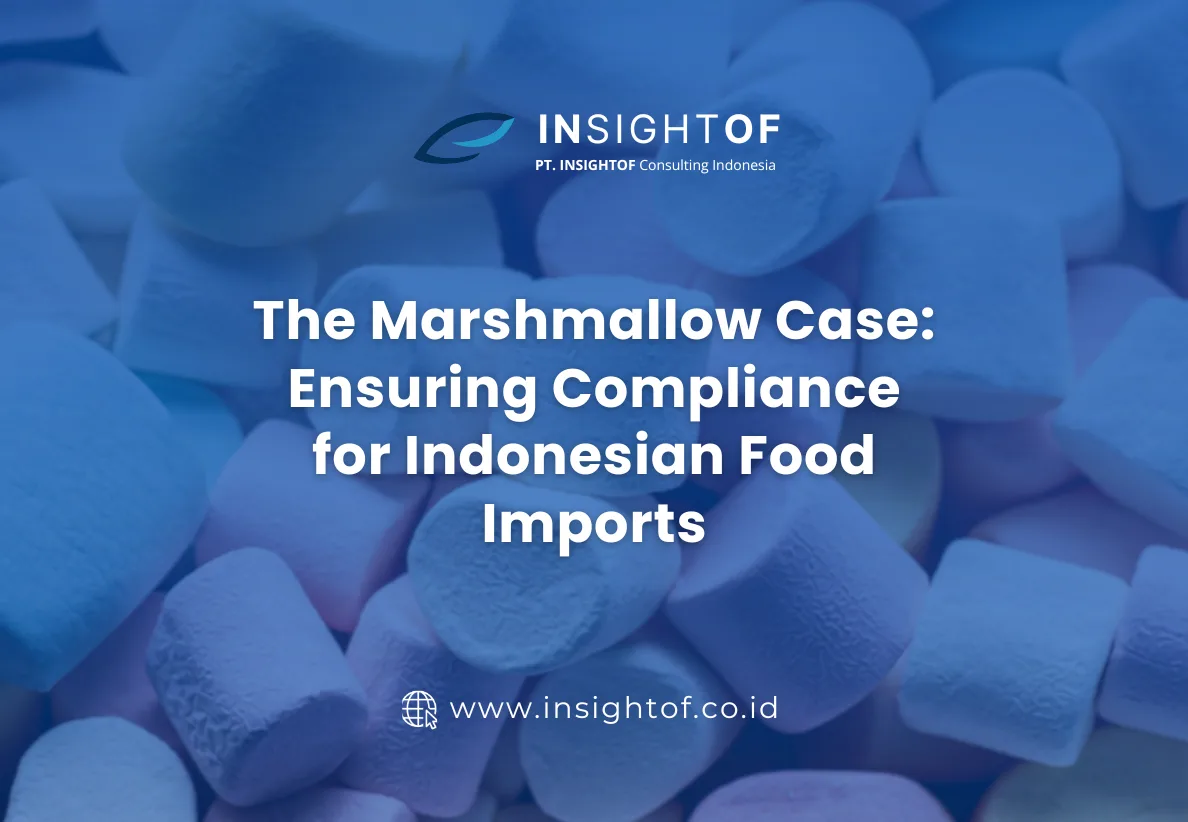


.svg/240px-YouTube_social_red_squircle_(2017).svg.png)
